Jerry Lin

The Latest
-
Trump’s $TRUMP Meme Coin Surges 50% After Dinner Offer to Top Holders
A cryptocurrency linked to President Donald Trump surged more than 50% in value Wednesday after its website announced an exclusive dinner with the former president for the top 220 holders of the $TRUMP meme coin. The coin's market capitalization jumped to $2.7 billion, according to CoinMarketCap, making it the day's top-performing digital asset. 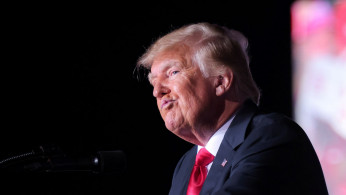
A cryptocurrency linked to President Donald Trump surged more than 50% in value Wednesday after its website announced an exclusive dinner with the former president for the top 220 holders of the $TRUMP meme coin. The coin's market capitalization jumped to $2.7 billion, according to CoinMarketCap, making it the day's top-performing digital asset. -
Gold Prices Drop as Trump Softens on Fed and China Tariffs, Market Sentiment Shifts
Gold prices declined sharply Wednesday as U.S. President Donald Trump signaled a softer approach toward both the Federal Reserve and China trade relations, prompting a wave of profit-taking after bullion hit all-time highs earlier this week. 
Gold prices declined sharply Wednesday as U.S. President Donald Trump signaled a softer approach toward both the Federal Reserve and China trade relations, prompting a wave of profit-taking after bullion hit all-time highs earlier this week. -
Gold Tops $3,500 as Trump’s Attacks on Fed Shake Investor Confidence
Gold prices surged to fresh record highs Tuesday, driven by mounting investor anxiety over U.S. political and economic instability following President Donald Trump's intensifying public assault on Federal Reserve Chair Jerome Powell. The precious metal climbed as high as $3,509.90 per ounce, extending a year-to-date rally that now exceeds 31%. 
Gold prices surged to fresh record highs Tuesday, driven by mounting investor anxiety over U.S. political and economic instability following President Donald Trump's intensifying public assault on Federal Reserve Chair Jerome Powell. The precious metal climbed as high as $3,509.90 per ounce, extending a year-to-date rally that now exceeds 31%. -
IMF Cuts 2025 U.S. Growth Forecast to 1.8% Amid Trump Tariffs and Rising Inflation
The International Monetary Fund has sharply lowered its U.S. growth forecast for 2025 to 1.8%, down from 2.7% in January, citing mounting trade tensions and the economic fallout from President Donald Trump's new round of tariffs. The revised projection, released Tuesday in the IMF's April 2025 World Economic Outlook, comes amid rising concerns about inflation and policy uncertainty across global markets. 
The International Monetary Fund has sharply lowered its U.S. growth forecast for 2025 to 1.8%, down from 2.7% in January, citing mounting trade tensions and the economic fallout from President Donald Trump's new round of tariffs. The revised projection, released Tuesday in the IMF's April 2025 World Economic Outlook, comes amid rising concerns about inflation and policy uncertainty across global markets. -
U.S. Stocks Plunge and Dollar Sinks to Three-Year Low as Trump Targets Fed Chair Powell Over Interest Rates
U.S. stocks plunged Monday and the dollar sank to its lowest level in over three years as investors reacted to President Donald Trump's escalating criticism of Federal Reserve Chair Jerome Powell and deepening concerns over trade policy. The Dow Jones Industrial Average fell 850 points, or 2.17%, while the S&P 500 dropped 2.26% and the Nasdaq Composite tumbled 2.67%. 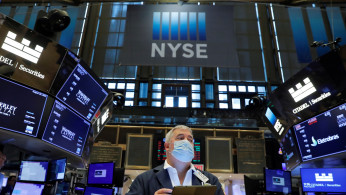
U.S. stocks plunged Monday and the dollar sank to its lowest level in over three years as investors reacted to President Donald Trump's escalating criticism of Federal Reserve Chair Jerome Powell and deepening concerns over trade policy. The Dow Jones Industrial Average fell 850 points, or 2.17%, while the S&P 500 dropped 2.26% and the Nasdaq Composite tumbled 2.67%. -
Oil Prices Slide as U.S.-Iran Talks Ease Supply Fears, Tariff Tensions Weigh on Demand Outlook
Oil prices fell sharply on Monday as signs of progress in nuclear negotiations between the U.S. and Iran eased fears of tight global supply, while persistent concerns about U.S. tariffs and their impact on global economic growth pressured demand expectations. 
Oil prices fell sharply on Monday as signs of progress in nuclear negotiations between the U.S. and Iran eased fears of tight global supply, while persistent concerns about U.S. tariffs and their impact on global economic growth pressured demand expectations. -
China Holds Lending Rates Steady as Strong GDP Eases Pressure for Stimulus
China's central bank left key lending rates unchanged Monday, as stronger-than-expected economic data allowed policymakers to prioritize currency stability amid rising pressure from U.S. trade measures. The decision to keep the one-year loan prime rate at 3.1% and the five-year LPR at 3.6% matched forecasts from a Reuters poll of economists. 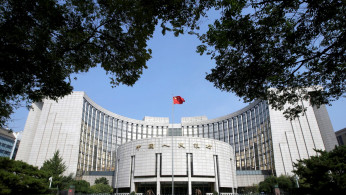
China's central bank left key lending rates unchanged Monday, as stronger-than-expected economic data allowed policymakers to prioritize currency stability amid rising pressure from U.S. trade measures. The decision to keep the one-year loan prime rate at 3.1% and the five-year LPR at 3.6% matched forecasts from a Reuters poll of economists. -
European Central Bank Slashes Rates for Third Time This Year, Citing Trade War Fallout
The European Central Bank on Thursday cut interest rates by 25 basis points to 2.25%, its seventh reduction in a year, as policymakers confront deepening economic uncertainty sparked by U.S. trade actions and fading post-pandemic inflation. The move comes as the eurozone grapples with slowing growth, a volatile investment environment, and the threat of a broader trade war with the United States. 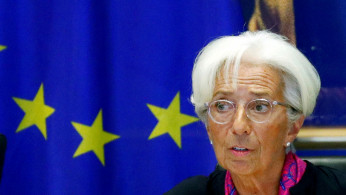
The European Central Bank on Thursday cut interest rates by 25 basis points to 2.25%, its seventh reduction in a year, as policymakers confront deepening economic uncertainty sparked by U.S. trade actions and fading post-pandemic inflation. The move comes as the eurozone grapples with slowing growth, a volatile investment environment, and the threat of a broader trade war with the United States. -
U.S. Retail Sales Surge 1.4% as Auto Buyers Rush to Beat Trump’s 25% Car Tariffs
Retail sales in the United States jumped 1.4% in March, the largest monthly gain since January 2023, as consumers rushed to purchase cars and other big-ticket items ahead of President Donald Trump's sweeping tariff increases. The Commerce Department said Wednesday the surge was led by a 5.3% rise in spending on vehicles and auto parts, outpacing broader retail activity. 
Retail sales in the United States jumped 1.4% in March, the largest monthly gain since January 2023, as consumers rushed to purchase cars and other big-ticket items ahead of President Donald Trump's sweeping tariff increases. The Commerce Department said Wednesday the surge was led by a 5.3% rise in spending on vehicles and auto parts, outpacing broader retail activity. -
India’s Trade Deficit with China Hits Record $99.2 Billion as Imports Surge 11.5%
India's merchandise trade deficit with China soared to a record $99.2 billion in the fiscal year ending March 2025, driven by a surge in electronics, batteries, and industrial inputs, despite government rhetoric aimed at curbing Chinese imports and improving self-reliance. 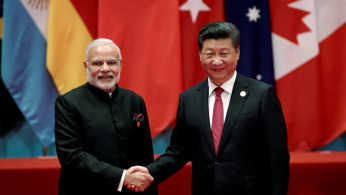
India's merchandise trade deficit with China soared to a record $99.2 billion in the fiscal year ending March 2025, driven by a surge in electronics, batteries, and industrial inputs, despite government rhetoric aimed at curbing Chinese imports and improving self-reliance.